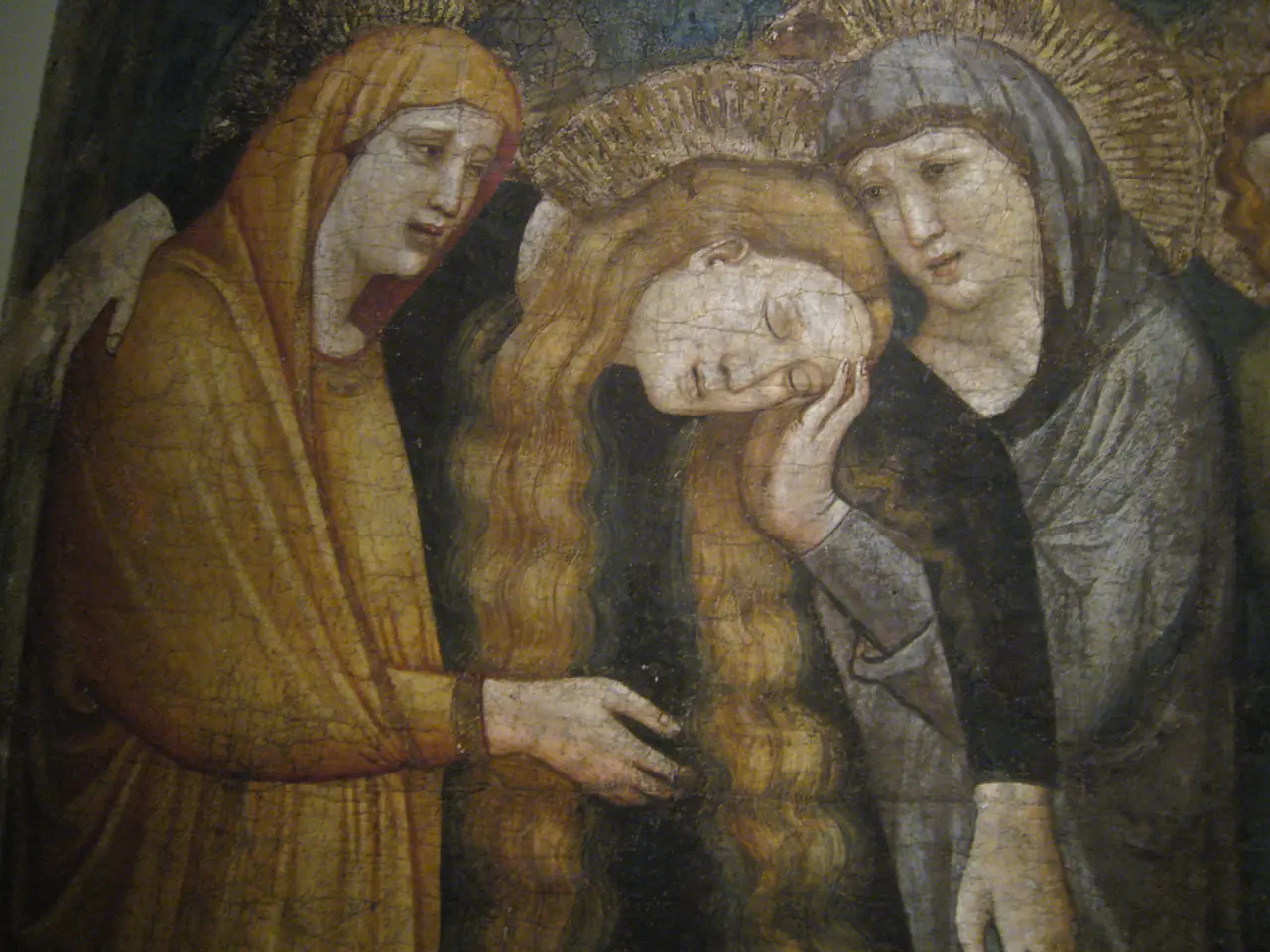"Flexibility prevails over rigidity": Nick Cave's evolving perspective on artificial intelligence, aided by an AI-generated Elvis
In a significant shift in his artistic journey, renowned musician Nick Cave has softened his stance on the use of Artificial Intelligence (AI) in music. This transformation was sparked by the Tupelo video, a 40-year milestone in the history of Cave's song Tupelo.
Initially, Cave was a vocal critic of AI in art, describing it as a "grotesque mockery of what it is to be human." In 2023, he expressed strong skepticism about AI's ability to authentically replicate human creativity. However, his perspective has since evolved.
The Tupelo video, a commemoration of the song's 40th anniversary, features still photos of Elvis Presley brought to life via the magic of AI. Directed by Cave's friend and collaborator, Andrew Dominik, the video was described by Cave as "a soulful, moving, and entirely original retelling of 'Tupelo,' rich in mythos and a touching tribute to the great Elvis Presley."
Cave's change of heart regarding AI in music was likely influenced by Dominik's work. The crucifixion-resurrection images at the end of the Tupelo video were both shocking and deeply affecting to Cave. He felt that the images had an uncanny quality, resembling a resurrection.
Nick Cave's evolving view on AI aligns with the 20th-century economist John Maynard Keynes, who famously said, "When the facts change, I change my mind - what do you do, sir?" Cave believes that remaining flexible and humble enough to adjust views as new evidence emerges is a form of resilience, not a sign of weakness.
Cave's current stance on AI in music is cautiously open but still deeply concerned. He acknowledges the potential of AI as an artistic device but is wary of its commodification and overuse in creative work. In particular, he maintains "serious reservations about AI," particularly regarding the use of language models in songwriting, which he feels reduce music to a commodity by eliminating genuine artistic struggle.
Despite his reservations, Cave's stance on AI has further evolved. He now views it as a tool like any other, acknowledging its potential to enhance and augment human creativity when used thoughtfully. This shift in perspective is a significant development in Cave's artistic journey, marking a notable example of the use of AI in creative work, specifically in the music industry.
In July 2025, Cave expressed his change of mind as a sign of strength and resilience, emphasizing the importance of flexibility and humility in adapting one's views when confronted with new evidence. The Tupelo video continues to influence Cave's perspective on AI in creative work, serving as a testament to the enduring influence of Elvis Presley in popular culture.
[1] Nick Cave's Red Hand Files Newsletter [2] The Guardian: Nick Cave's change of heart on AI in music [3] Rolling Stone: Nick Cave softens stance on AI in music [4] John Maynard Keynes Quote [5] AI in Music: A Debate
- Nick Cave, once a critic of AI in art, has now embraced it as a potential tool to enhance human creativity, particularly in music, following his experience with the Tupelo video.
- The use of AI in art and music, exemplified by the Tupelo video, has prompted Nick Cave to reconsider his stance, considering it a tool that, when used thoughtfully, can augment human creativity rather than a threat to it.




